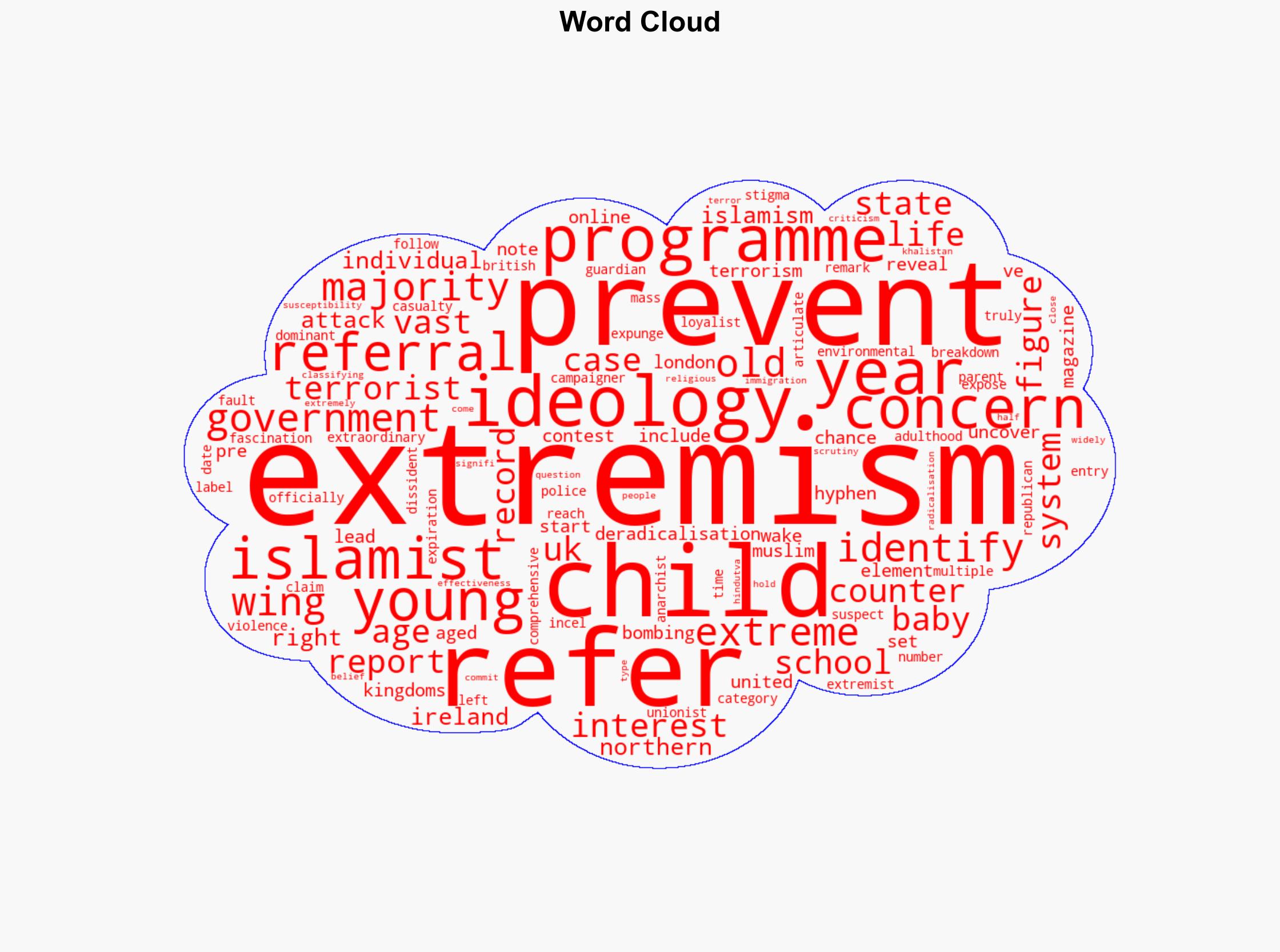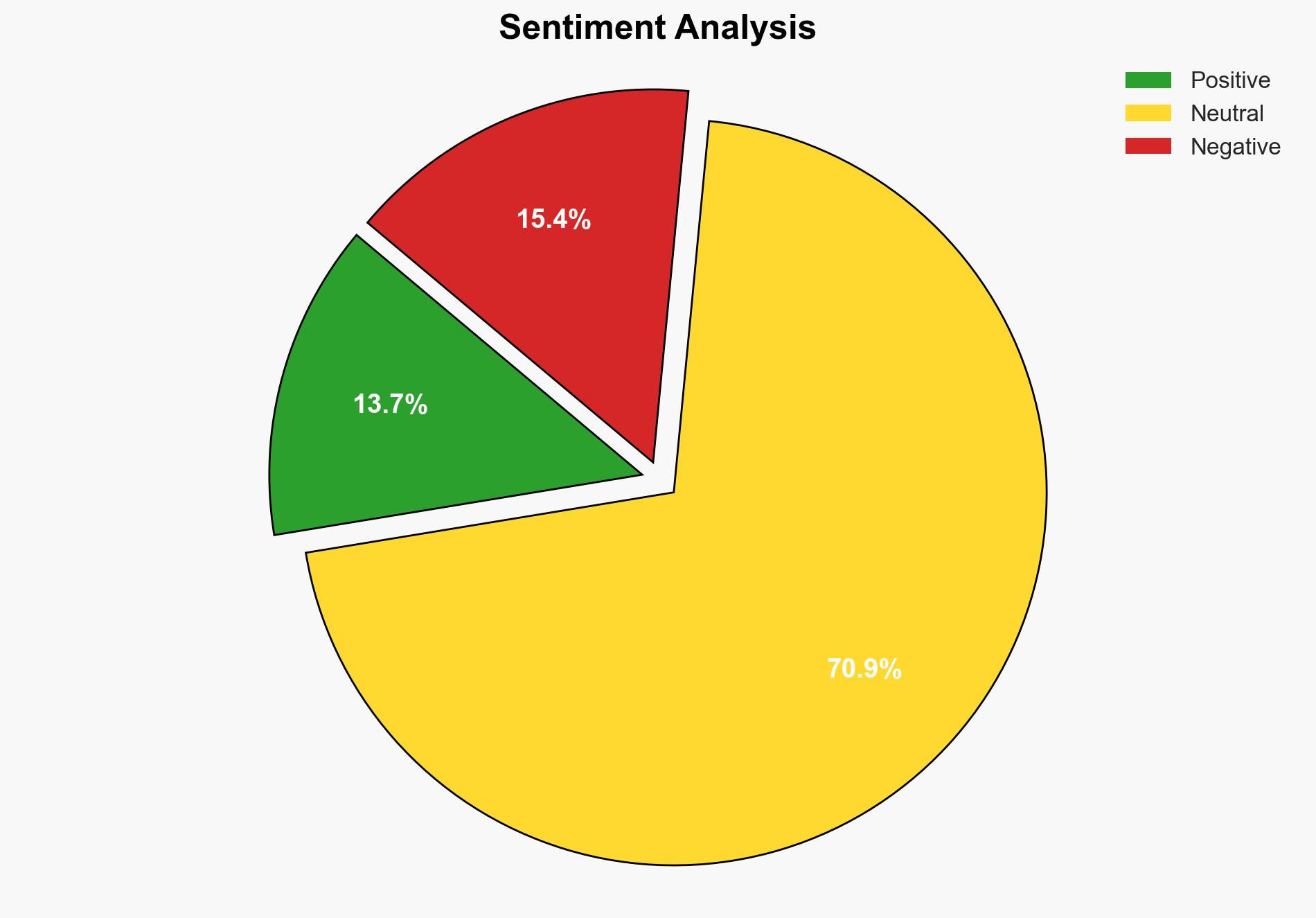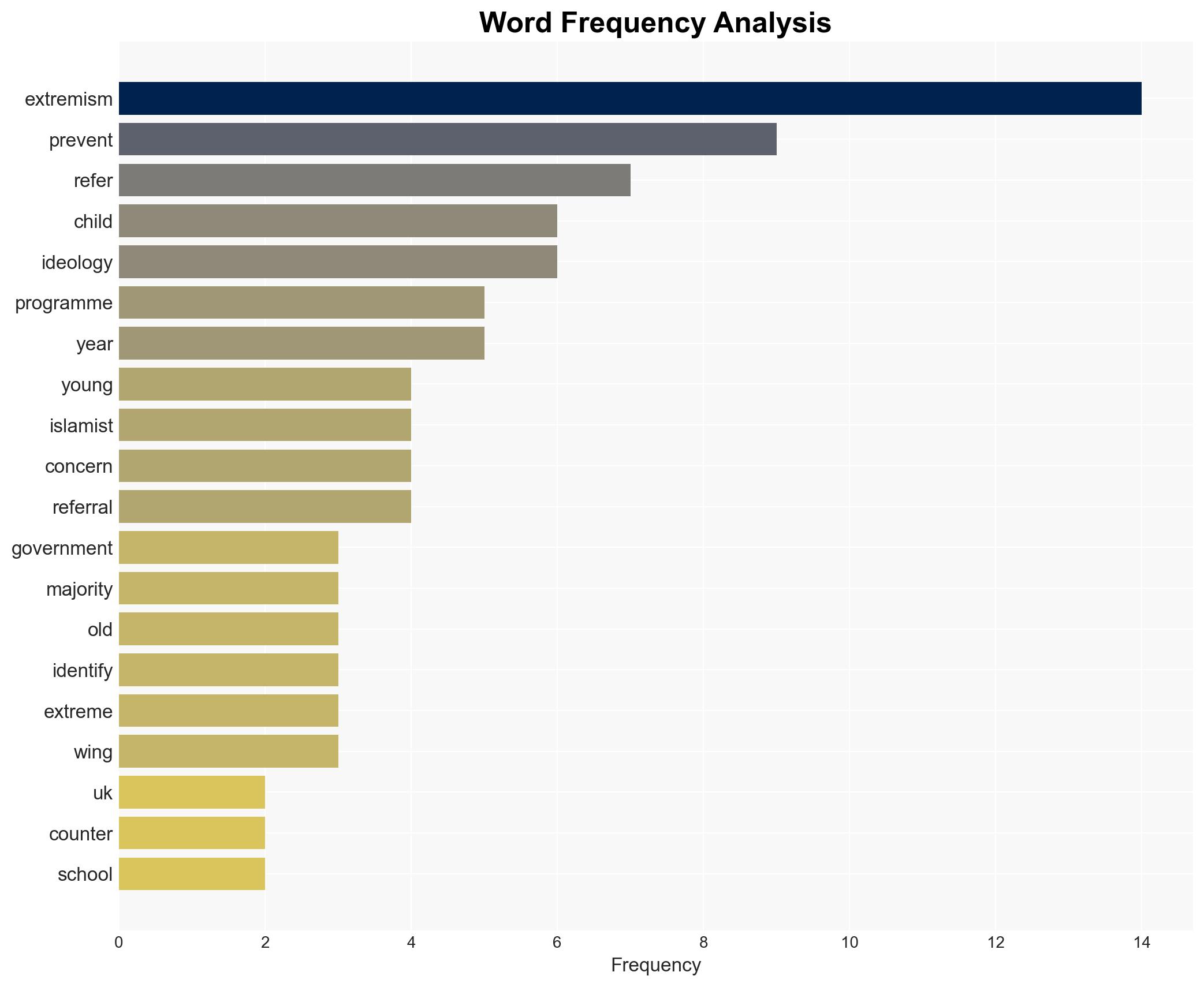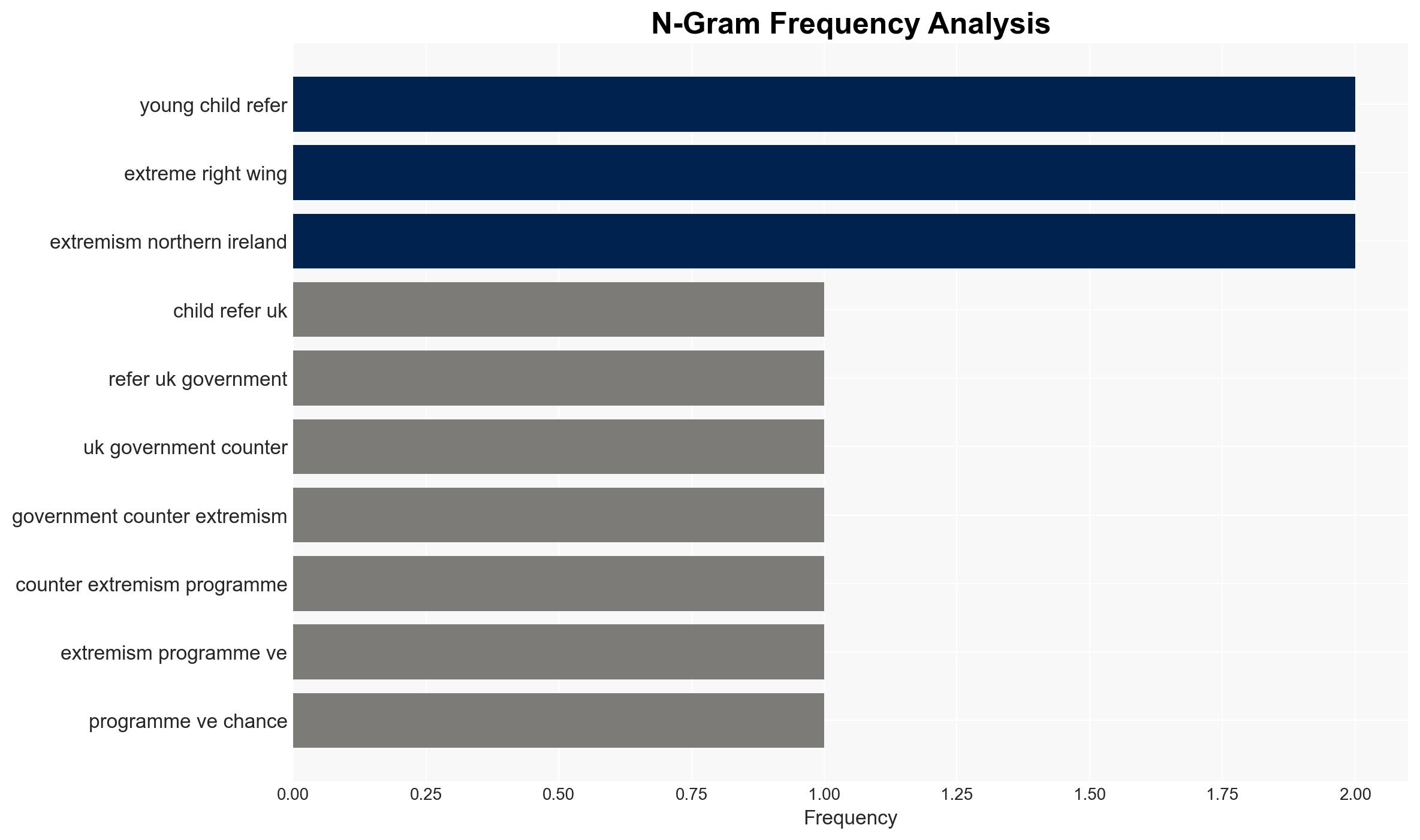Hundreds of Babies Toddlers Referred to UK’s De-Radicalisation Programme ‘Prevent’ – Breitbart News
Published on: 2025-11-13
AI-powered OSINT brief from verified open sources. Automated NLP signal extraction with human verification. See our Methodology and Why WorldWideWatchers.
Intelligence Report: Hundreds of Babies Toddlers Referred to UK’s De-Radicalisation Programme ‘Prevent’ – Breitbart News
1. BLUF (Bottom Line Up Front)
There is a moderate confidence level that the high number of young children referred to the UK’s Prevent programme reflects both a proactive approach to counter-extremism and potential overreach in identifying risks. The most supported hypothesis is that the referrals are primarily precautionary, driven by heightened sensitivity to Islamist extremism threats. Strategic recommendations include reviewing referral criteria and enhancing community engagement to balance security with civil liberties.
2. Competing Hypotheses
Hypothesis 1: The high number of young children referred to Prevent is a result of a proactive and precautionary approach by authorities to counter potential radicalization early, particularly in light of past terrorist incidents.
Hypothesis 2: The referrals indicate an overreach and misapplication of counter-extremism measures, potentially stigmatizing children and communities without substantial evidence of threat.
Hypothesis 1 is more likely given the historical context of terrorist threats in the UK and the government’s emphasis on preemptive measures. However, the lack of transparency and potential biases in referral practices lend some credence to Hypothesis 2.
3. Key Assumptions and Red Flags
Assumptions: The data on referrals is accurate and comprehensive. The Prevent programme’s criteria for referrals are consistently applied.
Red Flags: Lack of clarity on referral criteria and potential biases in identifying risks. Reports of stigma and long-term impacts on referred individuals suggest possible systemic issues.
Deception Indicators: Potential for data manipulation or selective reporting to justify programme expansion or funding.
4. Implications and Strategic Risks
The high referral rates could lead to increased community distrust and alienation, particularly among Muslim communities, potentially exacerbating radicalization risks. Politically, this could fuel debates on civil liberties versus security. Economically, resources may be diverted from other critical areas if Prevent is perceived as ineffective.
5. Recommendations and Outlook
- Conduct an independent review of the Prevent programme’s referral criteria and processes to ensure they are evidence-based and free from bias.
- Enhance community engagement and transparency to build trust and cooperation with affected communities.
- Best-case scenario: Improved programme effectiveness and community relations lead to reduced radicalization risks.
- Worst-case scenario: Continued mistrust and stigmatization result in increased radicalization and security threats.
- Most-likely scenario: Incremental improvements in programme transparency and community relations, with ongoing debates on its efficacy.
6. Key Individuals and Entities
No specific individuals are named in the source text. Key entities include the UK government, the Prevent programme, and affected communities, particularly those of Muslim background.
7. Thematic Tags
National Security Threats
Structured Analytic Techniques Applied
- Cognitive Bias Stress Test: Expose and correct potential biases in assessments through red-teaming and structured challenge.
- Bayesian Scenario Modeling: Use probabilistic forecasting for conflict trajectories or escalation likelihood.
- Network Influence Mapping: Map relationships between state and non-state actors for impact estimation.
Explore more:
National Security Threats Briefs ·
Daily Summary ·
Methodology





